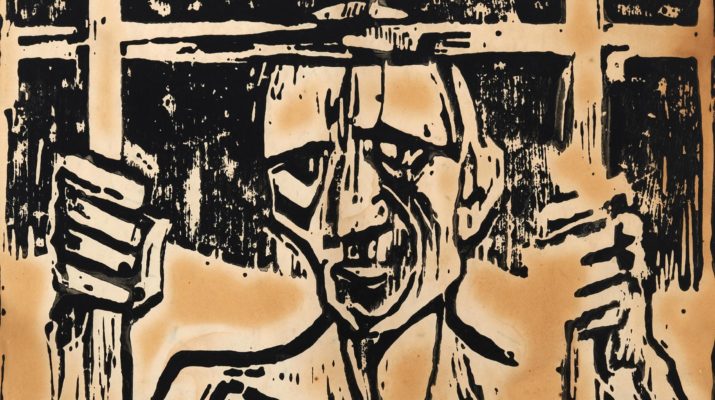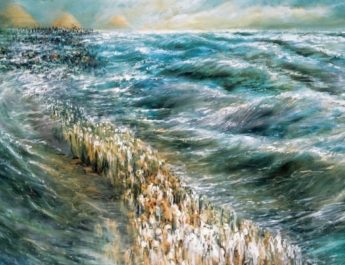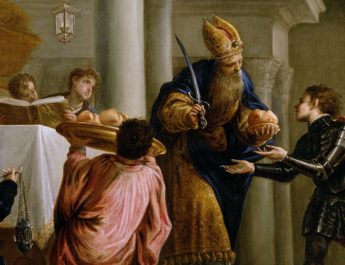Psalm 146:7c-10
Narrative Lectionary 130
7 who executesA justiceB for the oppressed;C
A “executes” = asah. This is to make, do, act, appoint, become in many senses.
B “justice” = mishpat. From shaphat (to judge, defend, pronounce judgment, condemn, govern). This is a verdict or formal sentence whether from humans or from God. It includes the act of judging as well as the place that judging takes place, the suit itself, and the penalty. Abstractly, this is justice, which includes the rights of the participants.
C “oppressed” = ashaq. This is to wrong, deceive, violate, or use oppression.
who givesD foodE to the hungry.F
The LordG sets the prisonersH free;I
D “gives” = natan. This is to give, put, set, offer. It is to give literally or figuratively.
E “food” = lechem. From lacham (to eat, feed on). This is bread, food, loaf. It can refer to food more generally for people or for animals.
F “hungry” = raeb. 16x in OT. From raeb (to be hungry or famished). This is hungry, a person who is hungry.
G “Lord” = YHVH. From havah (to be, become) or hayah (to come to pass, become, be). This is the name of the God of Israel, the self-existent and eternal one, the tetragrammaton. This pronunciation has been lost to time so “Lord” is generally used in its place.
H “prisoners” = asar. This is to tie, yoke, bind, or fasten. It can mean to harness an animal, to join in fighting a battle, or to imprison someone.
I “sets…free” = nathar. 8x in OT. This is to jump, spring, undo, be greatly agitated, untie, or terrify.
8 the Lord opensJ the eyes of the blind.K
The Lord lifts upL those who are bowed down;M
J “opens” = paqach. This is open, as opening one’s senses, particularly eyes. So, figuratively this can refer to being watchful.
K “blind” = ivver. From avar (to blind, put out). This is blindness or someone who is blind. It can be used literally or figuratively.
L “lifts up” = zaqaph. 2x in OT. This is to raise or lift up. Figuratively, it can mean to comfort.
M “bowed down” = kaphaph. 5x in OT. This is to bend, bow, or curve. It is used for bowed down (as in oppressed), a bulrush bowing, and bowing before God.
the Lord lovesN the righteous.O
9 The Lord watches overP the strangers;Q
N “loves” = aheb. This is to love, beloved, friend. It is to have affection for sexually or otherwise.
O “righteous” = tsaddiq. From the same as tsedeq (rightness, righteousness, just cause, vindication; that which is right in a natural, moral, or legal sense; abstractly equity; figuratively prosperity). This is just, innocent, righteous, righteous one, or lawful.
P “watches over” = shamar. This is to keep, watch, or preserve. It means to guard something or to protect it as a thorny hedge protects something.
Q “strangers” = ger. From gur (to abide or sojourn; to leave the road to lodge or for any other reason). This is sojourner, guest, stranger, foreigner.
he upholdsR the orphanS and the widow,T
but the wayU of the wickedV he brings to ruin.W
R “upholds” = ud. This is to repeat, return, do again. This implies testifying something since that is a repetition. It can also mean to charge, admonish, protest, relieve, restore, or lift up.
S “orphan” = yathom. This is a child without a father or more generally a person who is bereaved.
T “widow” = almanah. Related to alman (widowed); from alam (to be silent, bound). This is a widow or a house that is desolate.
U “way” = derek. From darak (to tread, march, to walk. Can also mean affixing a string to a box since one needs to step on it to bend it in the process; so also an archer). This is a road as a thing that is walked on. Can be used figuratively for the path that one’s life takes or how one chooses to live one’s life.
V “wicked” = rasha. This is morally wrong so it refers to someone who is actively bad as wicked, criminal, an evil person, offender, condemned, or ungodly.
W “brings to ruin” = avath. 11x in OT. This is to be crooked, falsify, pervert, thwart, turn upside down, overthrow.
10 The Lord will reignX forever,Y
your God,Z O Zion,AA for all generations.BB
PraiseCC the Lord!D
X “reign” = malak. To be or become king or queen, to rise to the throne, to be crowned. By implication, to take counsel. This word may be from the Hebrew word for king “melek” or vice versa.
Y “forever” = olam. This is a long scope of time whether in the past (antiquity, ancient time) or in the future (eternal, everlasting).
Z “God” = Elohim.
AA “Zion” = tsiyyon. Related to tsyiyyun (signpost, monument); from tsavah (to charge someone, to command, order); from the same as tsiyyah (dryness, drought); from a root meaning parched as desert, dry land. Zion can refer to a mountain in Jerusalem as well as another name for Jerusalem itself or the people.
BB “all generations” = dor + dor. Literally, “to generation and generation.” From dur (to move in a circle, which implies living somewhere or remaining there; it can also be the sense of piling or heaping up). This is a revolution of time, which is to say, an age or generation. It can also be a dwelling or one’s posterity.
CC “praise” = halal. This is to be clear – it originally referred to a sound, then a color. It was to shine and then make a show or boast then to rave. In a causative sense it came to mean celebrate, give glory, sing praise, or be worth of praise. Because of the celebratory nature of the word, it could also mean to give in marriage. This is where Hallelujah comes from.
DD “Lord” = Yah. Related to “Lord” in v7. From YHVH (see note G above). This is Lord or God – a shortened form of God’s most holy name.
Image credit: “The Prisoner” by Christian Rohlfs, 1918.




